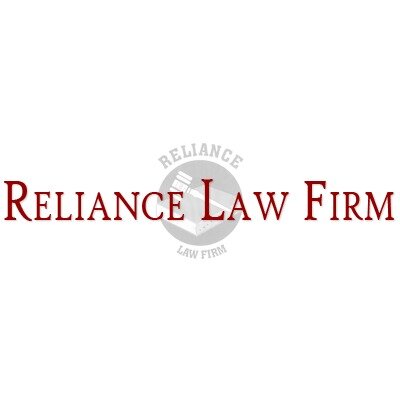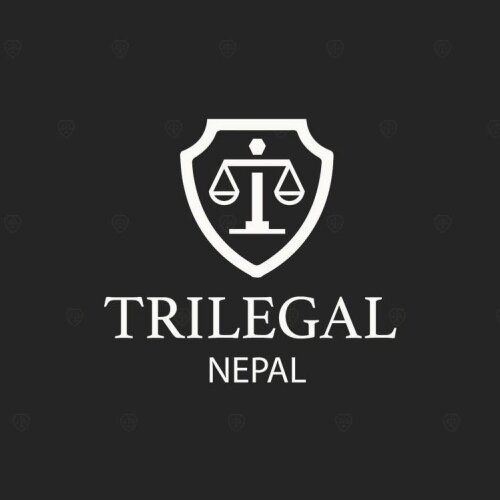Best Pension Lawyers in Nepal
Share your needs with us, get contacted by law firms.
Free. Takes 2 min.
Or refine your search by selecting a city:
List of the best lawyers in Nepal
About Pension Law in Nepal
Pension in Nepal is an essential component of the social security system, providing financial support to individuals after retirement. The pension laws in Nepal are primarily governed by the Contribution-based Social Security Act, which was enacted to enhance the living standards of the elderly and support their financial independence. The government has established the Social Security Fund (SSF) to manage and distribute pension benefits. Participation in this scheme is mandatory for employees in both public and private sectors, ensuring a well-structured pension system that aims to benefit all Nepali citizens who meet the eligibility criteria.
Why You May Need a Lawyer
There are several situations where individuals may require legal assistance concerning pension matters in Nepal:
- Understanding eligibility and entitlements under the pension scheme.
- Dealing with disputes related to pension calculations and payments.
- Addressing issues related to the non-payment or delay of pension benefits.
- Navigating changes in employment status and its impact on pension rights.
- Assisting with the process of claiming benefits from the Social Security Fund.
- Legal representation in cases of disagreements with employers or the Social Security Fund about pension contributions.
Local Laws Overview
Pension-related laws in Nepal offer a framework for financial security post-retirement, encompassing several key aspects:
- Contribution-based System: The system requires both employers and employees to contribute a specified percentage of the employee's salary to the Social Security Fund.
- Retirement Age: Determined by the type of employment, the retirement age varies typically around 58-60 years.
- Benefit Calculation: Pension benefits are calculated based on the total contributions made by both employer and employee during the employment period.
- Withdrawal and Benefits: Regulations govern the withdrawal process and benefit distribution, addressing scenarios like early retirement, disability, and death benefits.
- Compliance and Enforcement: Employers are mandated to comply with these regulations, and non-compliance can result in legal actions.
Frequently Asked Questions
1. What is the minimum contribution to the Social Security Fund?
Employers and employees are required to contribute to the Social Security Fund, generally a percentage of the employee's monthly salary, though specifics can be subject to policy updates.
2. Who is eligible for the pension scheme in Nepal?
Individuals employed in both the public and private sectors who are enrolled in the pension scheme and have made necessary contributions are eligible.
3. How is the pension amount calculated?
The pension amount is typically calculated based on the total accumulated contributions made during the employment period and the average salary from active years.
4. Can expatriates working in Nepal avail of the pension scheme?
Yes, if they are employed by companies operating under Nepali jurisdiction and contribute to the Social Security Fund.
5. What happens if an employer fails to contribute to the pension fund?
Employers may face legal actions and penalties for non-compliance, and employees have the right to seek redress.
6. How can I claim my pension benefits?
You need to file a claim with the Social Security Fund, providing necessary documentation like employment history and contribution records.
7. Is it possible to transfer pension benefits to another country?
This depends on bilateral agreements between Nepal and the concerned country regarding social security systems and benefits transfer.
8. Are self-employed individuals eligible for pension plans?
Usually, formal pension schemes do not cover self-employed individuals unless they voluntarily choose to contribute to the Social Security Fund.
9. What are the tax implications on pension benefits?
Pension benefits are typically tax-exempt in Nepal, but it's advisable to consult a tax professional for personal cases.
10. Can family members receive pension benefits in case of a pensioner's death?
Yes, dependents may be eligible to receive benefits if stipulated under the scheme rules concerning survivors' or bereavement benefits.
Additional Resources
For more information and assistance, consider reaching out to the following:
- Social Security Fund (SSF): The primary body managing the pension distribution.
- Ministry of Labour, Employment, and Social Security: Oversees the labour laws and regulations regarding social security.
- National Insurance Corporation (Rastriya Beema Sansthan): May provide additional pension schemes and insurance information.
- Legal Aid Clinics: Offer affordable legal services and advice in pension-related matters.
Next Steps
If you need legal assistance related to pension in Nepal, consider the following steps:
- Identify your specific legal needs concerning pension issues.
- Gather all relevant documents, such as employment contracts and contribution records.
- Consult with a lawyer specializing in pension and social security law for personalized advice.
- Contact relevant governmental bodies for clarifications and official procedures.
- If necessary, seek expert services from legal aid organizations or professional firms specializing in employment law.
Lawzana helps you find the best lawyers and law firms in Nepal through a curated and pre-screened list of qualified legal professionals. Our platform offers rankings and detailed profiles of attorneys and law firms, allowing you to compare based on practice areas, including Pension, experience, and client feedback.
Each profile includes a description of the firm's areas of practice, client reviews, team members and partners, year of establishment, spoken languages, office locations, contact information, social media presence, and any published articles or resources. Most firms on our platform speak English and are experienced in both local and international legal matters.
Get a quote from top-rated law firms in Nepal — quickly, securely, and without unnecessary hassle.
Disclaimer:
The information provided on this page is for general informational purposes only and does not constitute legal advice. While we strive to ensure the accuracy and relevance of the content, legal information may change over time, and interpretations of the law can vary. You should always consult with a qualified legal professional for advice specific to your situation.
We disclaim all liability for actions taken or not taken based on the content of this page. If you believe any information is incorrect or outdated, please contact us, and we will review and update it where appropriate.
Browse pension law firms by city in Nepal
Refine your search by selecting a city.

















